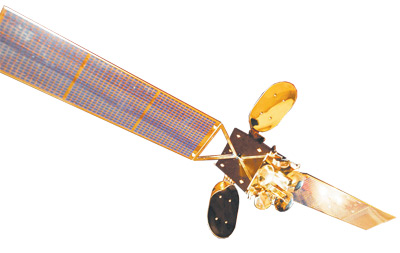I mentioned in a previous post that China has been building and launching satellites for other countries. This is not a unique practice since other countries have launched satellites for countries without their own space programs. However, in most cases, these other countries launch services have been aimed at making money. In China's case, there seems to be more to it.
China has constructed and launched geosynchronous communication satellites for Nigeria, Pakistan and Venezuela as well as earth observation satellites for Turkey. There are plans to build and launch satellites for Sri Lankra, Turkmenistan and Belarus. In addition to the revenue for China Aerospace Science and Technology Corporation (CASTC) and its subsidiary China Great Wall Industry Corporation (CGWIC), China's launch services are part of a diplomatic push to develop good relations with developing nations. China is busy buying up natural resources, farm land and buildings all over the world and the good will of current and potential suppliers is valuable for future trade.
In December of 2013 China launched the Tupac Katari 1, a communication satellite that they built for Bolivia. This is Bolivia's first communication satellite. It was financed by Bolivia and the China Development Bank. As part of the satellite package, China also trained seventy eight Bolivian satellite operators at the Shenzhou Institute. Operators have also been trained for the satellites that China launched for other developing nations.
A press release from the Chinese President said after the launch, "The satellite will play an important role for Bolivia to improve its broadcasting, education and medical services. It will make important contributions to promote cooperation between China and Latin American countries. China hopes for more space collaboration with Bolivia, which will promote mutual beneficial cooperation and friendly relations.” The Bolivian President responded with "China and Bolivia will take the opportunity of the successful launch to deepen cooperation in all areas and bring bilateral ties to a higher level.”
Formal diplomatic ties between Bolivia and China began in 1985. Bilateral relations include economic and cultural ties as well as military aid, transportation, infrastructure, raw materials, education and other areas. China exports hardware, machinery, light industrial goods, textiles, and other consumer goods to Bolivia. Bolivia exports lumber and mineral ores to China. China has loaned Bolivia fifteen billion dollars to help them develop the El Mutun iron-ore deposit. Bolivia will probably export iron ore to China when the infrastructure is in place to mine the iron ore.
Other Chinese joint projects in developing nations such as infrastructure development, mining projects, land and energy development have been labeled as "neo-colonial." When resources become scarce, the people of these other nations might prefer to retain their natural resources rather that honor contracts with the Chinese. The joint space projects are not seen as "neo-colonial" because the satellites that are launched wind up in space and not within the borders of the developing nation.
Tupac Katari 1:
